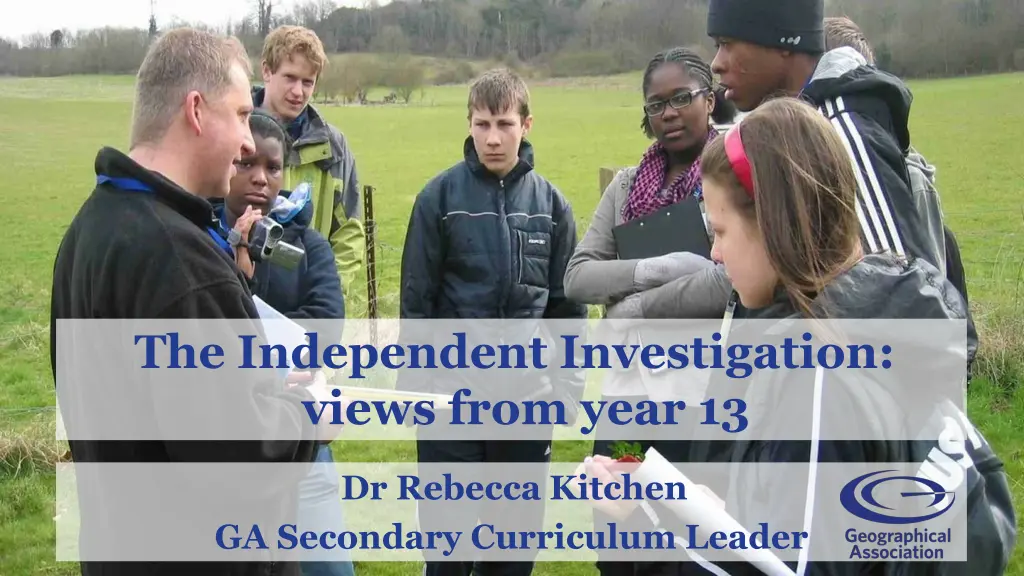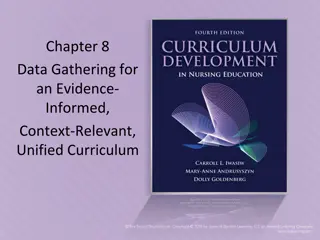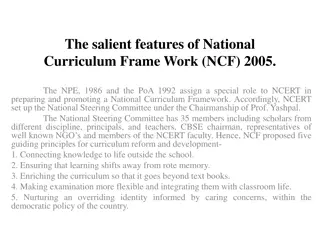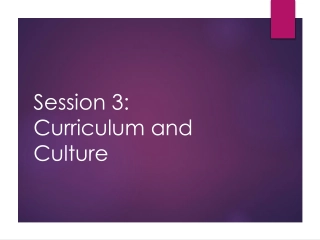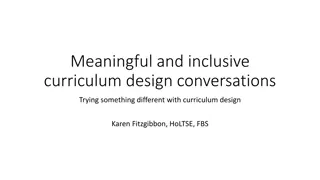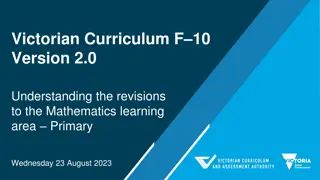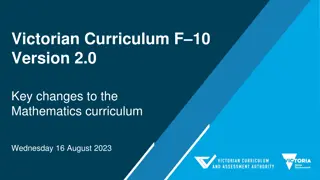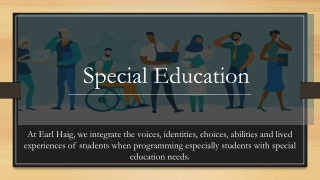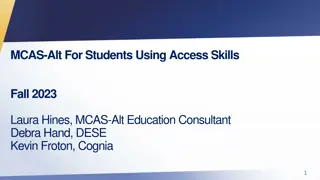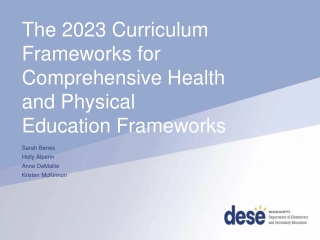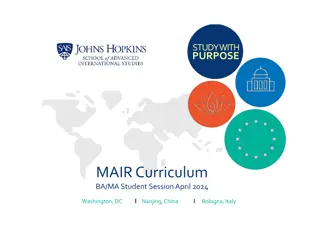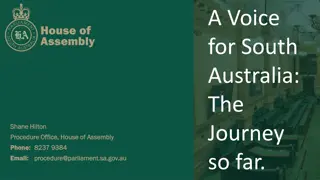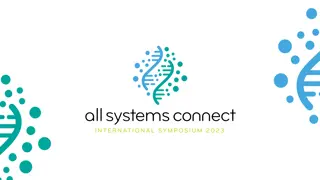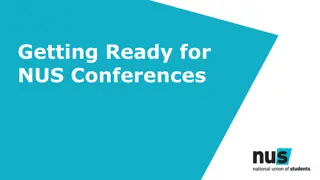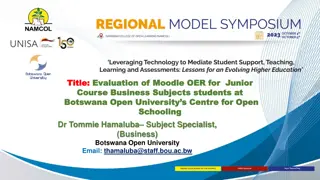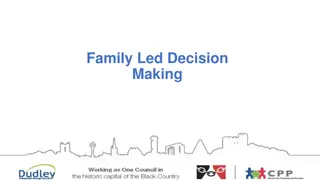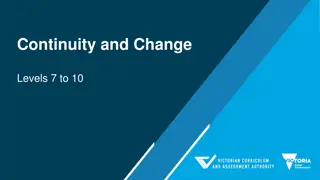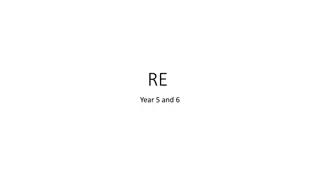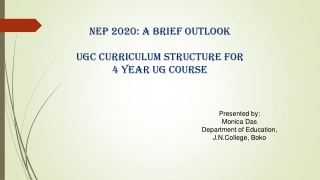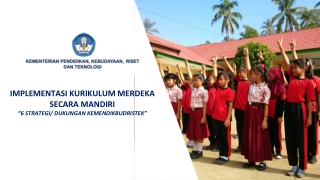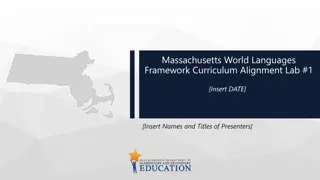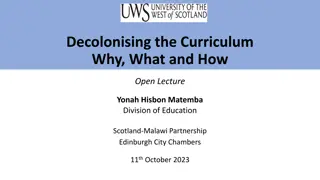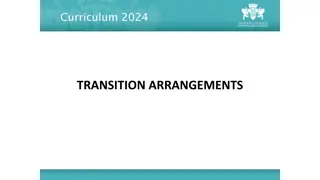Engaging Students' Voices in Curriculum Making
Understanding the importance of student views in the curriculum-making process and the need for an authentic experience to empower student voice. The Independent Investigation explores findings from student surveys and A-level specification preferences. Delve into how investigations were organized and which parts of the specification were focused on, offering insights into student research approaches.
Download Presentation
Please find below an Image/Link to download the presentation.
The content on the website is provided AS IS for your information and personal use only. It may not be sold, licensed, or shared on other websites without obtaining consent from the author. Download presentation by click this link. If you encounter any issues during the download, it is possible that the publisher has removed the file from their server.
Presentation Transcript
The Independent Investigation: views from year 13 Dr Rebecca Kitchen GA Secondary Curriculum Leader
Why is it important to listen to students views? Eliciting students opinions and feelings is an important aspect of the Curriculum Making process. The Independent Investigation has the potential for authentic student voice and choice it needs to be an authentic experience rather than students views merely treated as minor footnotes in an unaltered adult text . (Jones, 2018)
Findings from the GA Independent Investigation student survey
What A level specification are you following? OCR Specification Eduqas Edexcel AQA 0% 10% 20% Percentage of respondents 30% 40% 50% 60%
How was your Independent Investigation organised? 80% Percentage of respondents 70% 60% 50% 40% 30% 20% 10% 0% Field Centre led fieldwork Teacher led fieldwork I organised it myself Method of organisation
What part or parts of the specification did you choose to focus on for your Independent Investigation? Exploring oceans Climate change Aspects of the specification Weather and climate Development / economic growth and Population and the environment Contemporary urban environments Changing places Global systems and global governance Ecosystems under stress Hazards Coastal systems and landscapes Water and Carbon cycles 0% 5% 10% 15% 20% 25% 30% 35% 40% Percentage of respondents
What is the title of your Independent Investigation? Also, one investigation in Barcelona, Spain. Out of 78 titles, 21 did not refer to a specific location e.g. o To what extent has migration had different impacts along the rural-urban continuum? o To what extent does carbon sequestration vary between grazed and non grazed land? Traditional locations e.g. Holderness, North Wales, Jurassic coastlines
To what extent does the character of the Mumbles change with increasing distance away from Oyster Wharf? How does sense of place change over time in places such as Page Hall, Sheffield? To what extent does Sheffield have a UHI? Has Slimbridge Wetland Centre successfully produced an area of higher biodiversity compared to an unmanaged section of the Severn Estuary showing that it is possible for people to help prevent the loss of ecosystems and retain a healthy level of biodiversity? How do the characteristics such as soil pH and percentage cover of vegetation compare between deciduous and coniferous woodland in Dowdeswell wood?
What was the biggest challenge you faced in completing your Independent Investigation? Everything Weather Referencing Time Knowing what it looks like Area of challenge Evaluation Conclusion Data analysis Data presentation Secondary data collection Primary data collection Data collection Deciding a title Planning 0 2 4 6 8 10 12 14 16 Number of responses
Coming up with Hypothesis that were feasible and would work for the whole investigation. Finding out the type of rock at each of the two cliffs in my investigation. Figuring out how to do it by myself as limited help was given. Also struggled to think of a question as there were hardly any past titles available. Deciding which statistical tests to carry out. Only having a day to collect all the data as it was abroad. Understanding what is required of me. Understanding how to layout the essay, along with the integration of statistical analyses and GIS. Didn't have much guidance at all to get us started.
What is the thing you are most proud of in your Independent Investigation? Nothing Understanding geography and other Finished product Areas most proud of Independence Evaluation Conclusions Interesting results Data analysis Data presentation Interview with stakeholder Collecting data 0 5 10 15 20 25 Number of respondents
Interview with head of the mumbles development trust. My ability to organise my time effectively. My conclusions and how do to my investigation. I have managed to appropriately discuss the implications of climate change in regards to a real life scenario in North Wales. The fact that it is my own work and it structured like a dissertation, because these skills will be necessary in university. Understanding the concept of sense of place. My data analysis. Maths is not my strong suit so I was very proud of myself that I managed to use Mann- Whitney U test to analyse my data. Carrying out the whole thing independently because previously large pieces of work or investigations were much more led by teachers.
Did you enjoy carrying out your Independent Investigation? 35 30 Number of respondents 25 20 15 10 5 0 Yes No Sort of Answer
Why did you enjoy your Independent Investigation? Learnt a lot Enjoyed writing Aspects enjoyed Proud of the achievement Investigating something I was Good to use geographical skills Enjoyed the fieldwork Gave insight into university 0 2 4 6 8 10 12 14 Number of respondents
It allowed me to look at a part of geography I was interested about and learn about it further. The outcome is great. I am proud of how much I have achieved . Yes - I loved being able to research and develop a subject I was truly interested in and how geography is related to the real world. Yes because it s interesting, different to other subjects. Yes, it was an insight in to geography at uni. I enjoyed carrying out work in the field and using different types of equipment to record different types of data. It was a lot of work but it was quite enjoyable to investigate something that I wanted to do and then could lead, so yes.
Why did you not enjoy your Independent Investigation? Too difficult for A level Stressful as no help Aspects disliked Title was difficult Extra work Wasn't interested 0 5 10 15 20 Number of resepondents
No, found this very stressful and time consuming despite it only being 20%. No, it was a good challenge but the stress did not make me enjoy it as such. No, I found it hard to do it without any help. No it s too hard for A level students. No. It's too hard when it's so independent. It was far more of a university dissertation there needs to be more of a happy medium. No, it s not great in the sense that it s not a defined question set by the exam board. They want us to have the freedom to choose but I imagine teachers choose questions and help some students hugely, that s why the NEA/any coursework isn t fair.
Advice for teachers 1. Be supportive, particularly to stressed students 2. Stick to the rules but provide more support e.g. help sheets / checklists 3. Show examples of good and bad investigations 4. Know what gets the marks 5. Get it done early good to work on over the summer break 6. Set deadlines and make us keep to them! 7. Allow some lesson time to complete 8. Help us practice GIS and statistical techniques 9. Have individual meetings with students so you know how we are getting on 10. More fieldwork lower down the school 11. Try and encourage more peer marking as this will give other students ideas and advice. 12.Make sure you choose a location that meets at least two different topics within the specification for pupils to choose between
Advice for students 1. Choose your title after researching the area - don t pick something too broad 2. Be prepared to change your plan 3. Don t leave it to the last minute make sure you meet deadlines 4. Choose something that you are interested in 5. Contribute fully and properly to the collection of data- as once you ve left the site of study you ll only have a finite amount of data 6. Link back to your aim and hypotheses 7. Start the write up as soon as you finish your data collection 8. Plan each section before you start writing it 9. Look at some examples so you have an idea of what it looks like 10.Make notes about evaluative points as you go 11. Try to do something in the local area so you can revisit and collect more data 12.Follow the mark scheme
Developing an A level Independent Investigation toolkit, Teaching Geography, Autumn 2017
References Biddulph, M. (2017) What do we mean by curriculum?, in Jones, M. (ed.) The Handbook of Secondary Geography, Sheffield: Geographical Association. Jones, M. (2018) Personalising learning in geography, in Jones, M. and Lambert, D. (eds.) Debates in Geography Education, Second Edition, Abingdon: Routledge.
